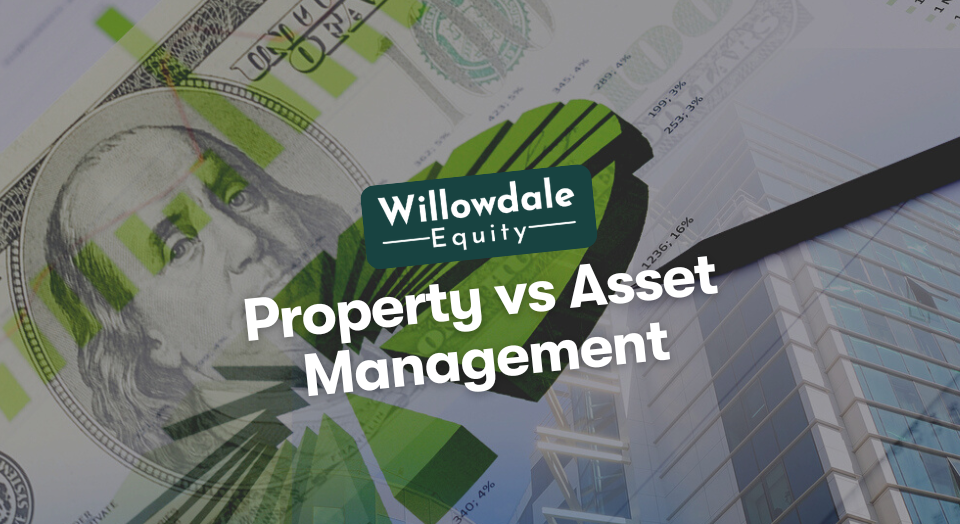
Property vs Asset Management: What is the Difference Between Asset Management and Property Management?
Property and real estate asset managers are becoming quite popular in the real estate industry. They help investors and owners manage several fundamental aspects of real estate investing and property ownership. However, both professionals serve two unique functions in real estate management.
In short, property managers focus on a property’s day-to-day operations. At the same time, an asset manager’s key role is maximizing property value and managing acquisitions/dispositions. However, this is merely an oversimplification.
This article will detail the key differences between property management and asset management.
Key Takeaways
-
Property management involves day-to-day managing operations of real estate ownership, including rental agreements, maintenance, rental income collection, and renovations, among other things.
-
In contrast, real estate asset management involves overseeing a property’s performance, developing financial strategies, and managing property transactions.
-
Asset management is for investors looking to purchase and manage multiple investment properties. In contrast, property management is for property owners looking to outsource the management function to experienced professionals.
What Does a Property Asset Manager Do?
A property asset manager is a highly skilled real estate professional that oversees real estate investments owned, leased, and subleased by individual investors or businesses.
Many successful investors find and hire property asset managers to:
- Ensure the real estate investment at hand performs and obtains the highest possible property value.
- Research potential commercial and residential properties to determine feasibility based on costs, taxes, demographics, and other factors.
- Perform cash flow analysis and market research for accurate property valuations and lead negotiations related to acquisitions, dispositions, etc.
- So far, we’ve explained the roles and duties of a property asset manager. Now, let’s dive deeper into property management and the roles of a property manager.
What Is Property Management?

Property management oversees and manages residential, commercial, and industrial real estate properties. Unlike real estate asset managers, property managers are hired as third-party contractors with full control over operations, maintenance, and agreements.
Some of their key property management functions include:
- Frequent communication with property owners regarding property updates and concerns.
- Marketing vacant properties or units and organizing showings.
- Finding and screening for good tenants.
- Executing leases and crafting agreements with clients and real estate agents.
- Taking maintenance requests from tenants and fixing those issues.
- Collecting rent from tenants.
- Dealing with any vendors that perform work at the property.
- Providing monthly or annual financial reports for maintenance and rental income collection.
As you can see, both property and asset managers help investors manage different aspects of property ownership. Therefore, in the next section, we’ll discuss why it’s a smart idea to have both.
Why Do You Need Both?
Hiring both property and asset managers is a smart decision. An asset manager can help develop, operate, maintain, upgrade, and dispose of real estate assets while maximizing profitability. Meanwhile, a property manager is boots on the ground to ensure they do what needs to be done daily.
Overall, both professionals simplify real estate investment management by taking care of these responsibilities, so owners don’t have to.
What is the Difference Between Asset Management and Property Management?

Many real estate investors remain unaware of asset management and property management differences. Therefore, to curb the confusion, here are some key points that differentiate the two distinctive management functions:
1.) Core Function
Property management involves day-to-day managing operations of real estate ownership, including rental agreements, maintenance, rental income collection, and renovations, among other things.
In contrast, real estate asset management involves overseeing a property’s performance, developing financial strategies, and managing property transactions.
2.) Goals
Asset managers’ main goal is to develop the best investment strategy possible to ensure positive cash flow and ROI for individual property owners and private companies. They use long-term financial forecasts to manage clients’ rental properties or real estate portfolios.
In contrast, property management services or professionals have one goal – to maintain a property’s market value by overseeing its ongoing operations and condition, ensuring investor/tenant satisfaction for a fixed monthly fee.
3.) Who Needs them
Asset management is for investors looking to purchase and manage multiple investment properties. In contrast, property management is for property owners looking to outsource the management function to experienced professionals.
Frequently Asked Questions about Asset Management and Property Management
No, asset management and property management are two different real estate management functions. A property manager is responsible for managing rent, tenants, property maintenance and repairs, and investors.
Meanwhile, a real estate asset manager manages investment or residential properties on behalf of investors/owners to maintain asset value and prevent depreciation. Asset managers work to ensure steady cash flow by conducting regular cash flow analysis using the latest real estate trends.
Real estate asset managers are paid a salary or charge a monthly or annual fee for managing real estate portfolios for different types of real estate investors (private companies, rental property investors, etc.)
Property Management vs. Asset Management — Conclusion
Property and asset management are two connected but distinctive concepts. Understanding their core differences can help investors craft a more refined investment strategy.
If you’re not interested in managing a multifamily property, join the investors club here at Willowdale Equity to passively invest in value-add multifamily real estate investments across the southeastern United States.
Sources:
- Investopedia, “Property Management: Definition, Roles, Types, and Duties“
Interested In Learning More About PASSIVE Real Estate Investing In Multifamily Properties?
Get Access to the FREE 5 Day PASSIVE Real Estate Investing Crash Course.
In this video crash course, you’ll learn everything you need to know from A to Z
about passive investing in multifamily real estate.
We’ll cover topics like earned income vs passive income, the tax advantages, why multifamily, inflation, how syndications work, and much much more!




